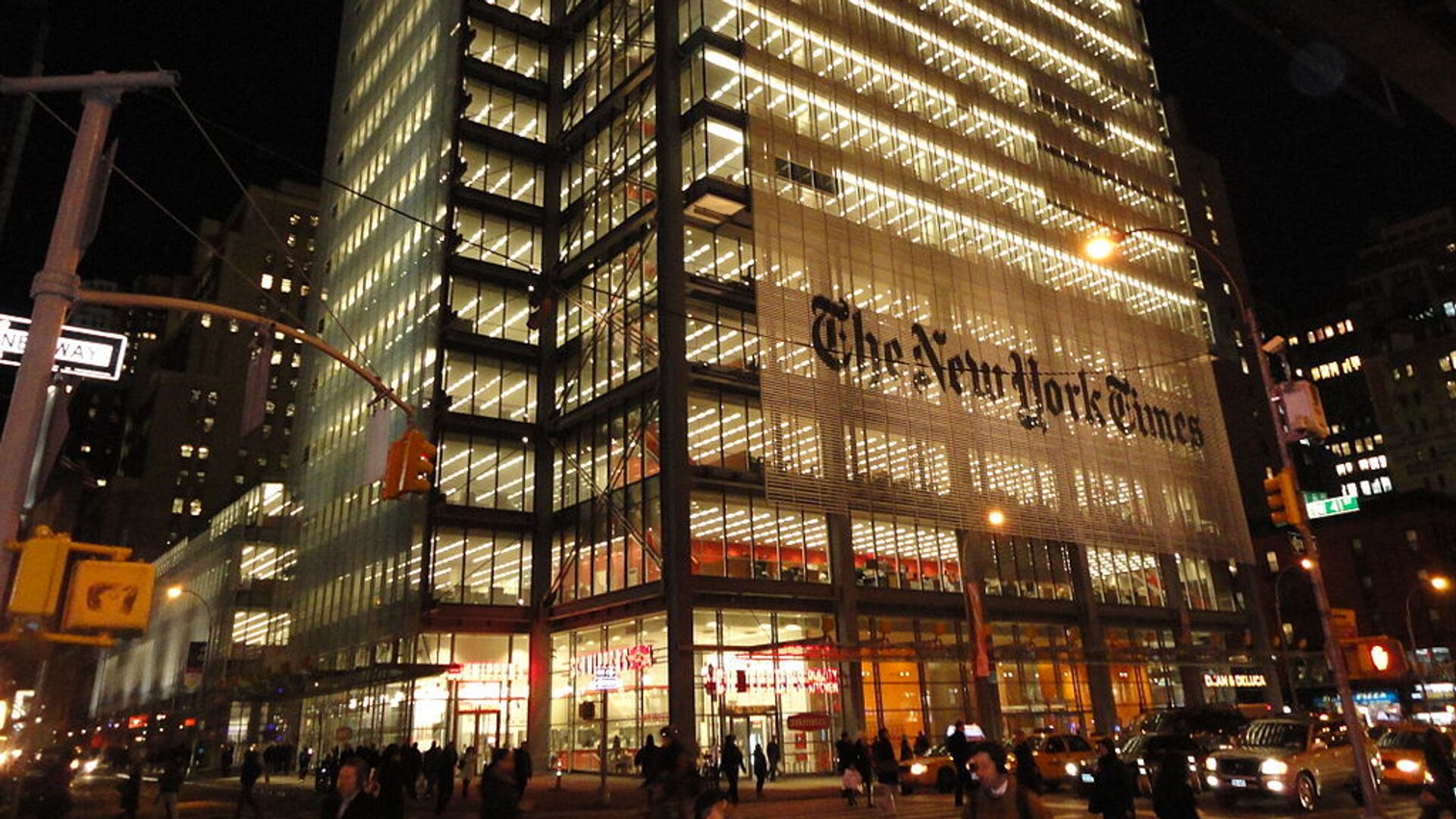https://sputnikglobe.com/20240228/is-the-west-admitting-defeat-in-ukraine-with-the-cias-limited-hangout-1117045322.html
Is the West Admitting Defeat in Ukraine with the CIA’s ‘Limited Hangout?’
Is the West Admitting Defeat in Ukraine with the CIA’s ‘Limited Hangout?’
Sputnik International
Journalist Nebojsa Malic speculated about the reasons for the US intelligence agency’s controlled release of information in The New York Times this week.
2024-02-28T23:26+0000
2024-02-28T23:26+0000
2024-02-28T23:26+0000
us
ukraine
cia
the new york times
emmanuel macron
france
nato
russia-nato showdown
syria
timber sycamore
https://cdn1.img.sputnikglobe.com/img/107578/92/1075789248_0:165:1024:741_1920x0_80_0_0_b00ffd70afb86e49d107d62603865649.jpg
French President Emmanuel Macron made headlines this week by holding a meeting with European leaders where the idea of sending NATO troops to assist the Kiev regime was reportedly discussed. The controversial leader, who has publicly lamented the fall of the French monarchy, is an unpopular figure in his country with his approval rate hovering around just 30% after cuts to labor rights and France’s social system.The prospect of European troops in Ukraine stirred significant controversy, with figures throughout the continent immediately distancing themselves from the proposal. Moscow also rejected the idea, with Kremlin spokesman Dmitry Peskov warning it was “absolutely against the interests of those nations” and their people.Macron’s meeting was the second major development in as many days indicating the West’s current feelings about the Donbass conflict, after a lengthy Sunday article in The New York Times revealed the depth of the US Central Intelligence Agency’s (CIA) decade-long intervention in Ukraine. What do these reports reveal about the state of the US-led anti-Russia campaign on the Eurasian country’s border? Serbian-American journalist Nebojsa Malic joined Sputnik’s Fault Lines program on Wednesday to analyze the news.“On the other hand, it could have been sort of a trial balloon to see what sort of narratives we concede here to continue escalating because, again, that's what the US and its allies have been doing since day one,” he suggested. “They started with sending Javelins and Stingers and now they're on fighter jets.”Malic noted the West’s claims that they are “not directly involved” in the Donbass conflict are ironic given that US President Joe Biden has held Iran accountable for sending weapons and equipment to anti-US militias in the Middle East.Discussion then shifted towards The New York Times’ reporting over the weekend that detailed the CIA’s extensive role in turning Ukraine into a beachhead for attacks against Russia since 2014’s Euromaidan coup. The exposé had the effect of legitimizing Russian President Vladimir Putin’s claims that the Maidan regime represented an existential threat to Russia, requiring an armed response.“Something is happening here and I'm not quite sure what,” said Malic. “You've got all these revelations showing up and usually they show up ahead of something truly heinous. Like, the last time The New York Times admitted… assassinating Daria Dugina, the Ukrainians pulled off the Crimean bridge attack that killed people.” Malic speculated whether the “limited hangout” represented by the Times article was intended to serve as a “smokescreen” for another terrorist attack.“It could be that all of this noise is just a smokescreen for some kind of abandonment of Ukraine because it clearly hasn't worked,” said Malic.Host Jamarl Thomas agreed, noting how The New York Times published revelations about the CIA’s involvement in Syria as former President Barack Obama was leaving office. The CIA operation, which cost over $1 billion, was one of the most expensive and complex in the agency’s history. Thomas suggested the disclosure about US intelligence agencies’ involvement in Ukraine could similarly signal a “collapse” of efforts there, speculating the Kiev regime is faring even more poorly than publicly acknowledged.Malic agreed, saying Sunday’s article could represent another attempt to “pressure” Congress to pass funding for Ukraine. But the journalist noted that the West’s problem is an “industrial” one. Even if billions of dollars in aid were provisioned for the Kiev regime tomorrow, the West simply doesn’t have the industrial capacity to match Russia’s substantial arms production.The end result could be similar to the situation in Syria, where “they never officially recanted their goal of regime change in Syria, but the so-called ‘moderate rebels’ are nonexistent, they're basically [Daesh*],” Malic noted. “They're content to sit there and just pillage Syrian wheat and oil and try to strangle the country with these sanctions that are intended to cause maximum pain to the population, but not the government, and hope that another rebellion springs up and overthrows the government.”“It's malicious as well as stupid, which means it's par for the course for the State Department unfortunately,” he concluded.* ISIS (also known as Daesh/ISIL/IS/Islamic State) is a terrorist group banned in Russia and many other countries.
https://sputnikglobe.com/20240228/scholz-reiterates-that-german-soldiers-will-not-be-sent-to-ukraine-1117043586.html
https://sputnikglobe.com/20240227/putin-was-right-western-complicity-in-ukraines-terrorism-proves-wisdom-of-special-operation-1117001814.html
https://sputnikglobe.com/20231023/daria-duginas-assassination-orchestrated-by-ukrainian-intelligence---report-1114425037.html
https://sputnikglobe.com/20240224/unbowed-in-face-of-us-sponsored-terror-syria-kicks-off-campaign-to-revitalize-ancient-damascus-1116957206.html
ukraine
france
syria
russia
Sputnik International
feedback@sputniknews.com
+74956456601
MIA „Rossiya Segodnya“
2024
John Miles
https://cdn1.img.sputnikglobe.com/img/07e8/01/19/1116388787_0:0:1316:1316_100x100_80_0_0_77e70d36afd983012b1c5d38ddb84156.jpg
John Miles
https://cdn1.img.sputnikglobe.com/img/07e8/01/19/1116388787_0:0:1316:1316_100x100_80_0_0_77e70d36afd983012b1c5d38ddb84156.jpg
News
en_EN
Sputnik International
feedback@sputniknews.com
+74956456601
MIA „Rossiya Segodnya“
Sputnik International
feedback@sputniknews.com
+74956456601
MIA „Rossiya Segodnya“
John Miles
https://cdn1.img.sputnikglobe.com/img/07e8/01/19/1116388787_0:0:1316:1316_100x100_80_0_0_77e70d36afd983012b1c5d38ddb84156.jpg
us defeat in ukraine, west defeat in ukraine, zelensky defeated, macron troops in ukraine, macron nato troops in ukraine, new york times cia ukraine, new york times cia reporting, cia limited hangout, cia ukraine limited hangout, cia role in ukraine and syria, us weapons for ukraine, us aid to ukraine, us funding for ukraine, us funding to ukraine, russian economy under sanctions, us sanctions, sanctions on russia, sanctions against russia, us hegemony, unipolar world, russophobia, russophoby, anti-russian bias, wwiii, ww3, world war three, world war 3
us defeat in ukraine, west defeat in ukraine, zelensky defeated, macron troops in ukraine, macron nato troops in ukraine, new york times cia ukraine, new york times cia reporting, cia limited hangout, cia ukraine limited hangout, cia role in ukraine and syria, us weapons for ukraine, us aid to ukraine, us funding for ukraine, us funding to ukraine, russian economy under sanctions, us sanctions, sanctions on russia, sanctions against russia, us hegemony, unipolar world, russophobia, russophoby, anti-russian bias, wwiii, ww3, world war three, world war 3
French President Emmanuel Macron made headlines this week by holding a meeting with European leaders where the idea of sending NATO troops to assist the Kiev regime was reportedly discussed. The controversial leader, who has publicly
lamented the fall of the French monarchy, is an unpopular figure in his country with his approval rate
hovering around just 30% after cuts to labor rights and France’s social system.
The prospect of European troops in Ukraine stirred significant controversy, with figures throughout the continent immediately distancing themselves from the proposal. Moscow also rejected the idea, with Kremlin spokesman Dmitry Peskov
warning it was “absolutely against the interests of those nations” and their people.
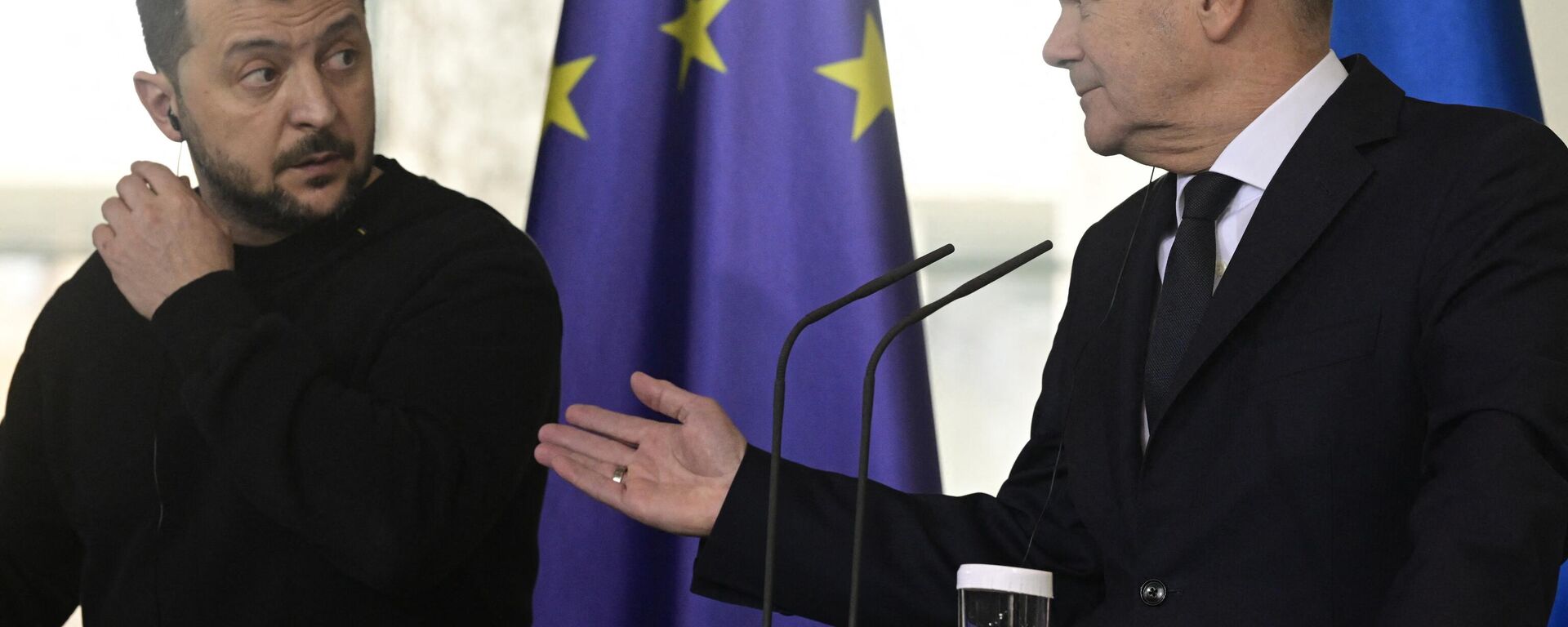
28 February 2024, 18:35 GMT
Macron’s meeting was the second major development in as many days indicating the West’s current feelings about the Donbass conflict, after a lengthy Sunday article in The New York Times revealed the depth of the US Central Intelligence Agency’s (CIA)
decade-long intervention in Ukraine. What do these reports reveal about the state of the US-led anti-Russia campaign on the Eurasian country’s border? Serbian-American journalist Nebojsa Malic joined
Sputnik’s Fault Lines program on Wednesday to analyze the news.
“On one level this could have been an attempt by Macron to, I guess, intimidate Russia,” said the columnist for RT and AntiWar.com, “which backfired horribly because Russia is not being intimidated by this. It seems like the rapid disavowal of this option by everybody else countermanded that.”
“On the other hand, it could have been sort of a trial balloon to see what sort of narratives we concede here to continue escalating because, again, that's what the US and its allies have been doing since day one,” he suggested. “They started with sending Javelins and Stingers and now they're on fighter jets.”
Malic noted the West’s claims that they are “not directly involved” in the Donbass conflict are ironic given that US President Joe Biden has held Iran accountable for sending weapons and equipment to anti-US militias in the Middle East.
Discussion then shifted towards The New York Times’ reporting over the weekend that detailed
the CIA’s extensive role in turning Ukraine into a beachhead for attacks against Russia since 2014’s Euromaidan coup. The exposé had the effect of legitimizing Russian President Vladimir Putin’s claims that the Maidan regime represented an existential threat to Russia, requiring an armed response.
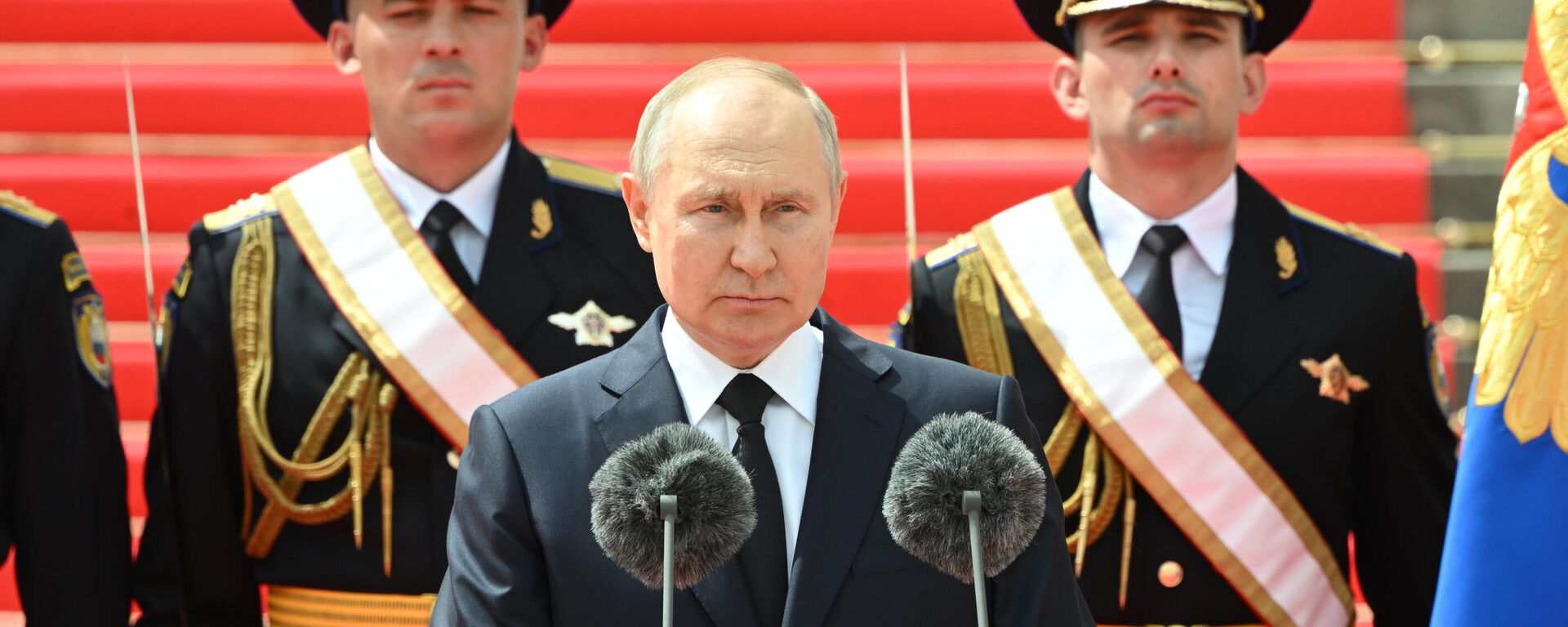
27 February 2024, 00:55 GMT
“Something is happening here and I'm not quite sure what,” said Malic. “You've got all these revelations showing up and usually they show up ahead of something truly heinous. Like, the last time The New York Times admitted… assassinating Daria Dugina, the Ukrainians pulled off the Crimean bridge attack that killed people.” Malic speculated whether the “limited hangout” represented by the Times article was intended to serve as a “smokescreen” for another terrorist attack.
The term “limited hangout” first entered public consciousness in the 1970s amidst the Watergate scandal. Former US President Richard Nixon was recorded using the intelligence term during a meeting with White House aides where advisors suggested revealing some details about the Watergate burglary. Since then the term is understood as a PR tactic wherein the public is given limited, carefully-selected information about something to distract from a broader, often incriminating narrative.
“It could be that all of this noise is just a smokescreen for some kind of abandonment of Ukraine because it clearly hasn't worked,” said Malic.
Host Jamarl Thomas agreed, noting how The New York Times published revelations about the CIA’s involvement in Syria as former President Barack Obama was leaving office. The CIA operation, which cost over $1 billion, was one of the most expensive and complex in the agency’s history. Thomas suggested the disclosure about US intelligence agencies’ involvement in Ukraine could similarly signal a “collapse” of efforts there, speculating the Kiev regime is faring even more poorly than publicly acknowledged.
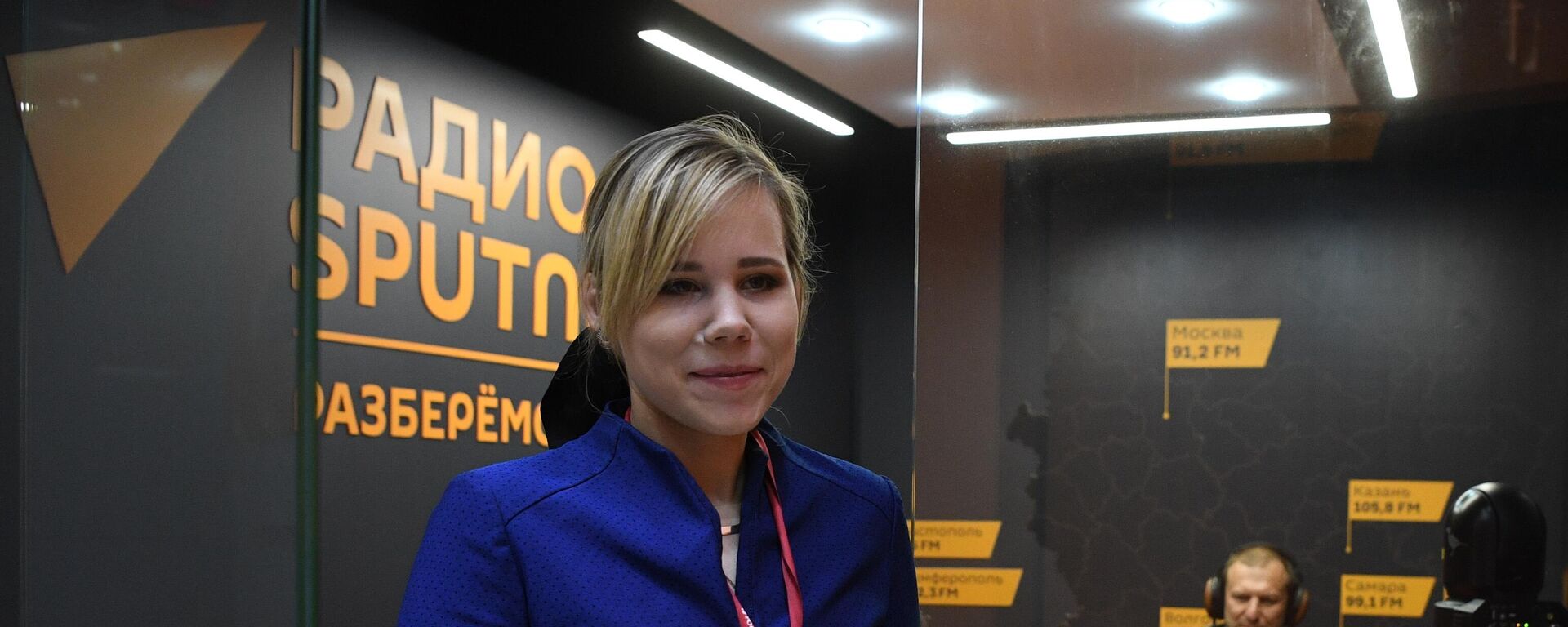
23 October 2023, 11:49 GMT
Malic agreed, saying Sunday’s article could represent another attempt to “pressure” Congress to pass funding for Ukraine. But the journalist noted that the West’s problem is an “industrial” one. Even if billions of dollars in aid were provisioned for the Kiev regime tomorrow, the West simply doesn’t have the industrial capacity to match
Russia’s substantial arms production.
The end result could be similar to the situation in Syria, where “they never officially recanted their goal of regime change in Syria, but the so-called ‘moderate rebels’ are nonexistent, they're basically [Daesh*],” Malic noted. “They're content to sit there and just pillage Syrian wheat and oil and try to strangle the country with these sanctions that are intended to cause maximum pain to the population, but not the government, and hope that another rebellion springs up and overthrows the government.”
“It's malicious as well as stupid, which means it's par for the course for the State Department unfortunately,” he concluded.
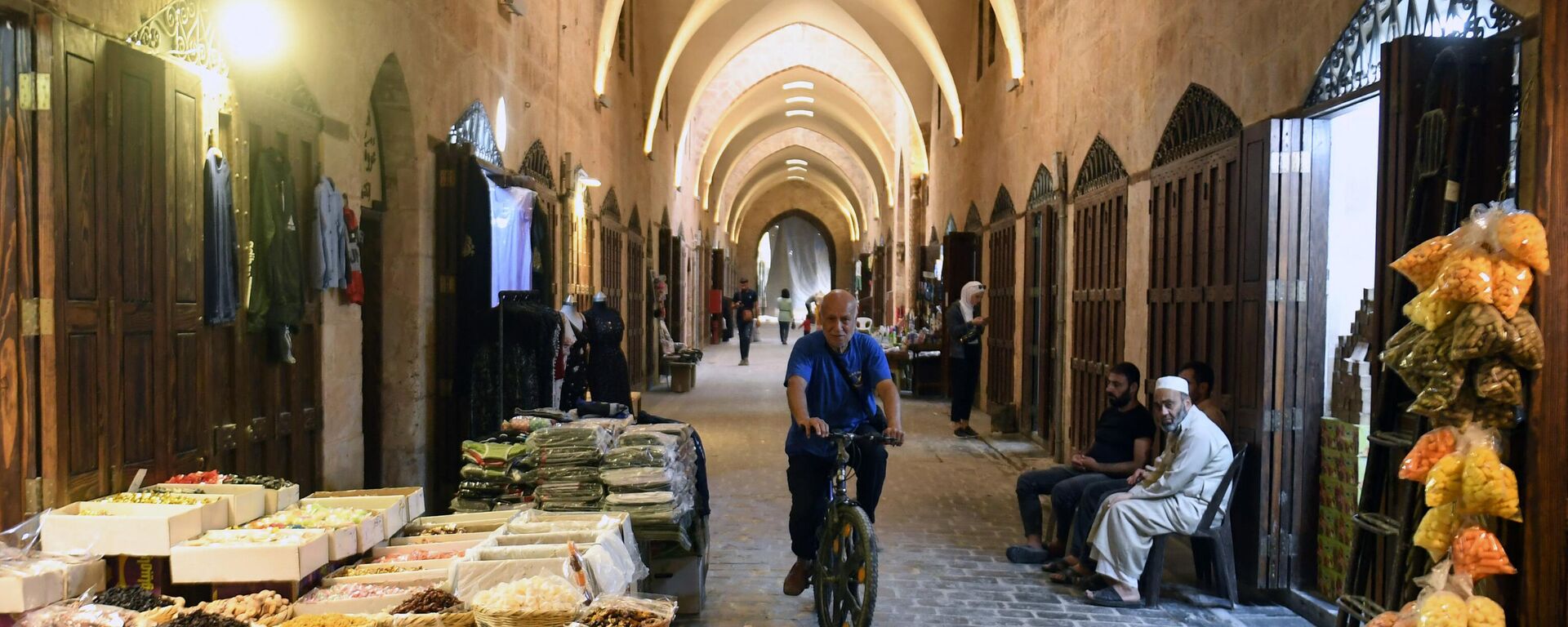
24 February 2024, 19:03 GMT
* ISIS (also known as Daesh/ISIL/IS/Islamic State) is a terrorist group banned in Russia and many other countries.



